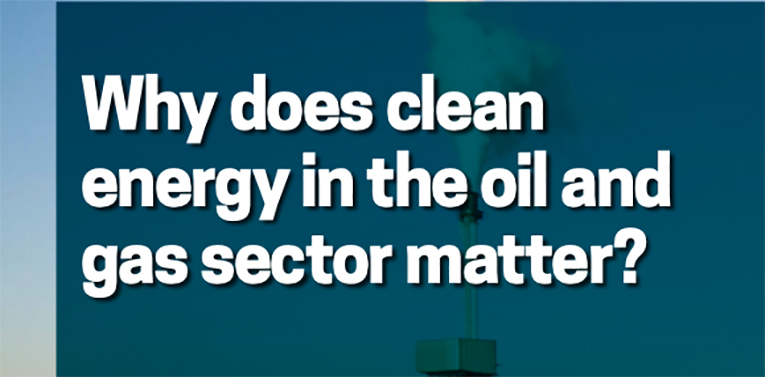It is not surprising that the transition to clean energy alternatives has already come to influence the oil and gas sector. But, moreover, what is most evident in the North American case is that it has not only had an influence; it is also defining the agenda as never before.
Aldo santillan – energy capital magazine
By Aldo Santillan – Managing Director & Editor in Chief, Energy Capital Magazine
Until just a few months ago, the large North American companies in the sector, including Chevron, ExxonMobil, and ConocoPhillips; were reluctant to make more substantial commitments related to emissions reduction and clean energy infrastructure additions. Likewise, within these oil majors’ development plans, few or no strategies were included for their infrastructures’ transition into cleaner ways of generating energy.
In contrast, their European counterparts had already made giant strides on the subject in the past. For instance, companies such as bp, Shell, Eni, Repsol, and the recently renamed TotalEnergies, refocused their strategies in recent years; thus, prioritizing strengthening their renewable clean energy developments.
Likewise, most of these companies sought, for instance, to extend profit returns on their existing assets. As a result, they also limited their investments in future oil exploration and production (E&P) activities.
The North American case
While it took longer for U.S. oil companies to conclude that clean energy is also their business, change is already happening. Accordingly, the U.S. energy industry is moving more aggressively than ever before to reduce its carbon footprint.
What led companies in the region to come to this understanding? In part, this trend is being spurred by vast policy pressure from a new administration. Also, by the increasing relevance of ESG standards in clean energy capital raising.
Clean Energy: the new benchmark
Therefore, the focus now is more on how the sector will get there than whether it is the right decision. As Dan Yergin, IHS Markit vice chairman, said in early March: “The oil and gas industry is calibrating itself into what has become the new benchmark; net zero carbon by 2050.” Indeed, “there’s a lot of variation in strategies. But the big cross-cutting themes are hydrogen, carbon capture, innovation,” Yergin noted.
Similarly, Baker Hughes Chairman and CEO Lorenzo Simonelli recently said that oil and gas companies could start their clean energy transition journey; particularly, by leveraging efficiency to reduce the carbon footprint from hydrocarbons today.
Also, they could benefit from the use of existing technologies which can already limit methane emissions. Lastly, the industry must divert its operations into the increasingly varied energy mix, the CEO added. There, the potential of other clean energy sources like hydrogen and fuel cells is emerging.
However, we can’t neglect that some hydrocarbons will still be crucial in this clean energy transition process; particularly since a lot of energy is still required by the world population. In that sense, and as experts like Simonelli note, it all comes down to be socially responsible.
Companies in the industry are more motivated than ever to come with net-zero commitments; mainly, ones that are reachable and that make financial sense to them. Thus, oil and gas players can ease this energy transition path by implementing ways and strategies to lower their own carbon footprint within their manufacturing processes. Finally, they can also develop digital remote operations to decrease the footprint of their operations. The technology will continue evolving, and companies in the sector must take leverage of those now.


